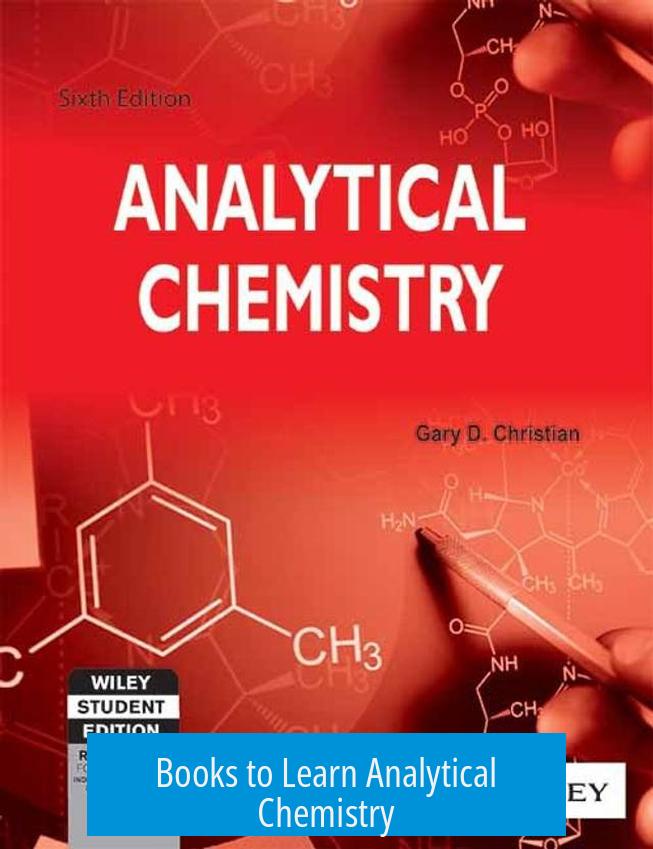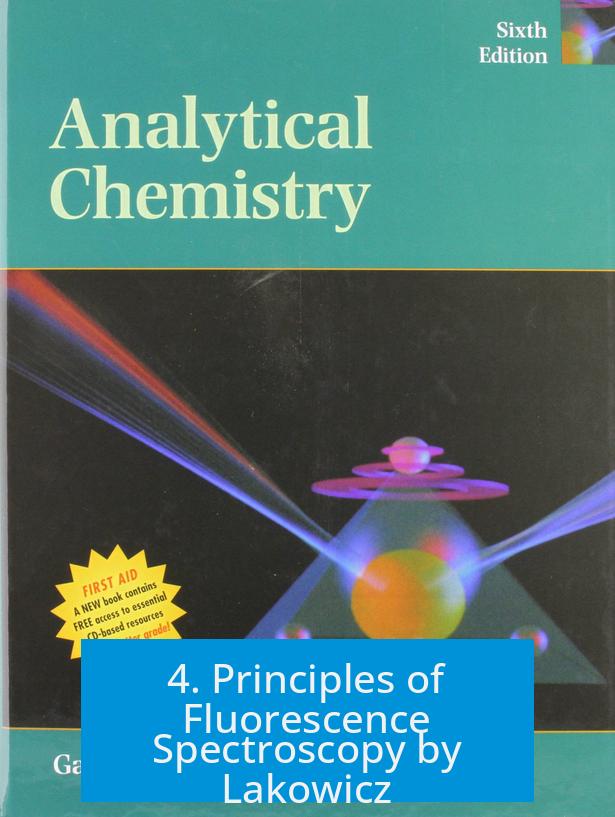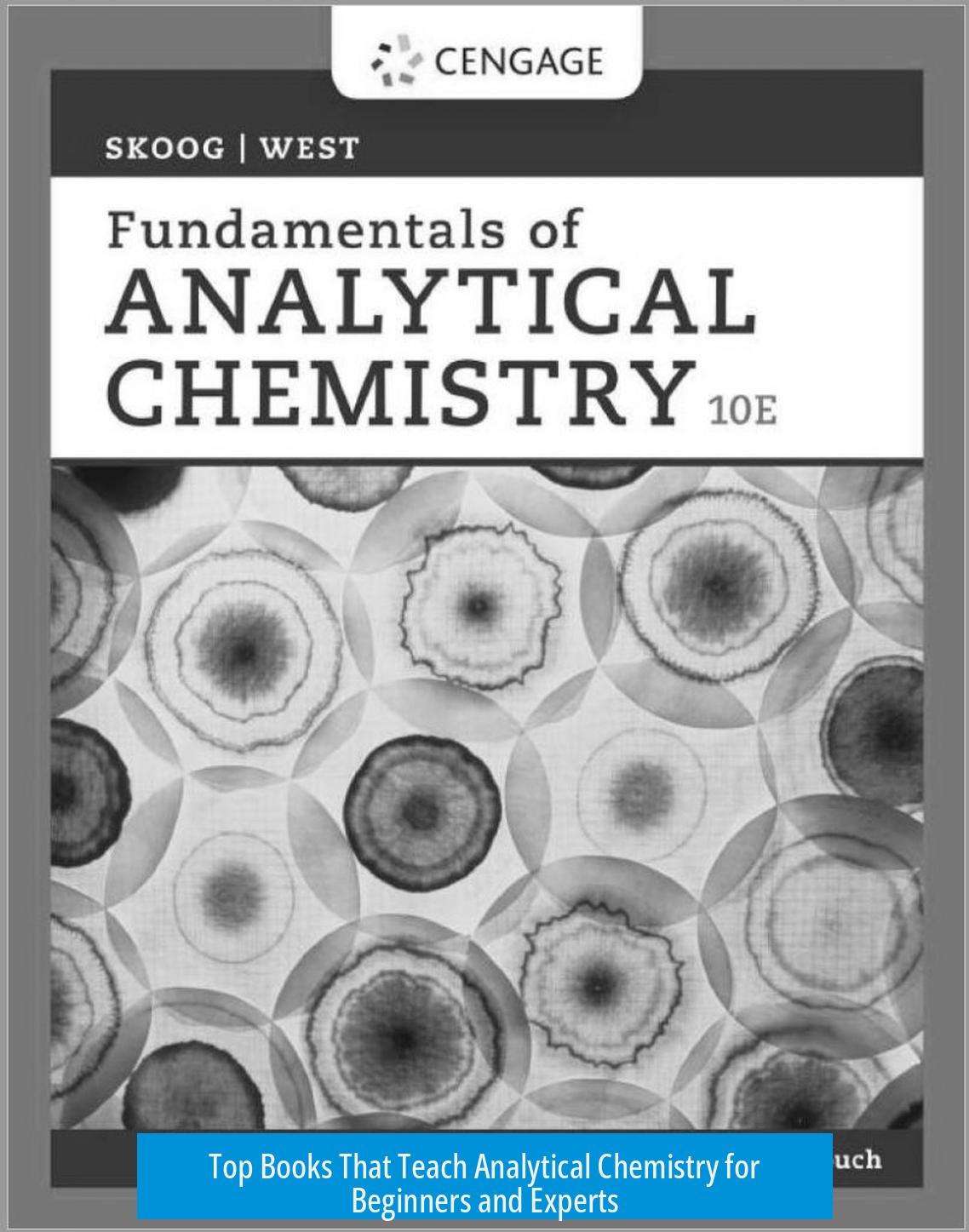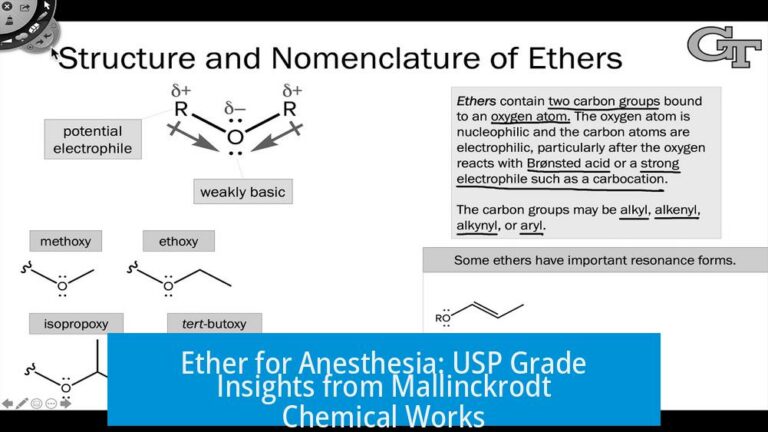Books to Learn Analytical Chemistry

Some good books that teach analytical chemistry include “Quantitative Chemical Analysis” by Harris, “Fundamentals of Analytical Chemistry” by Skoog, West, and Holler, “Practical HPLC Method Development” by Synder, and “Principles of Fluorescence Spectroscopy” by Lakowicz. These texts provide comprehensive coverage of core concepts and specialized techniques.
1. Quantitative Chemical Analysis by Harris
This book offers in-depth coverage of analytical principles and techniques. It discusses quantitative methods in detail, making it suitable for beginners and experienced users alike. Students and professionals can use it as a solid reference during practical work. Its comprehensive approach makes it a highly recommended resource.
2. Fundamentals of Analytical Chemistry by Skoog, West, and Holler
Known as the classic text in the field, this book covers fundamental concepts with clear explanations. It is widely used in academic courses and provides foundational knowledge in instrumental and wet chemical analysis methods. Students often rely on it for structured learning.
3. Practical HPLC Method Development by Synder
This text focuses on High-Performance Liquid Chromatography (HPLC). It guides readers through method development and optimization in chromatography. Ideal for chemists working with analytical separations, it offers practical advice useful in lab settings.
4. Principles of Fluorescence Spectroscopy by Lakowicz

For those interested in spectroscopy and molecular interactions, this book is a specialized resource. It explains fluorescence techniques and their applications, such as studying drug-protein binding. It is highly valued in research fields involving fluorescence analysis.
Additional Online Resource
The Saylor CHEM108 course provides accessible online content on analytical chemistry fundamentals. It complements the books by offering structured lessons and exercises.
Key Takeaways
- Harris’s “Quantitative Chemical Analysis” is comprehensive and practical.
- Skoog et al.’s “Fundamentals of Analytical Chemistry” is a standard textbook for foundational knowledge.
- Synder’s book specializes in HPLC method development for chromatography work.
- Lakowicz’s “Principles of Fluorescence Spectroscopy” addresses advanced fluorescence techniques.
- Online courses like Saylor CHEM108 supplement textbook learning effectively.
What is a comprehensive book for learning the basics of analytical chemistry?
Quantitative Chemical Analysis by Harris is a detailed book. It covers basic concepts well and serves as a handy reference in the field.
Which textbook is recommended for foundational knowledge in analytical chemistry?
Fundamentals of Analytical Chemistry by Skoog, West, and Holler is widely used. It offers clear explanations for core topics in the subject.
Can you suggest a book focused on HPLC method development?
Practical HPLC Method Development by Synder is a solid choice. It helps understand and design HPLC procedures practically.
Is there a specialized book for fluorescence spectroscopy applications?
Principles of Fluorescence Spectroscopy by Lakowicz is ideal. It is useful for studies like how Ibuprofen binds to proteins.
Are there any good free online resources to learn analytical chemistry?
The Saylor CHEM108 course offers a thorough introduction and is freely accessible online at saylor.org.





Leave a Comment